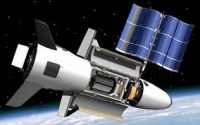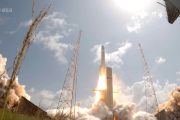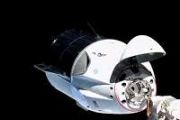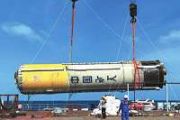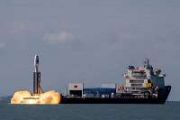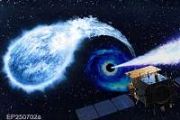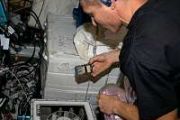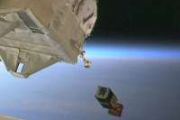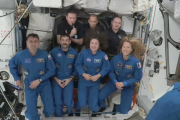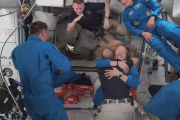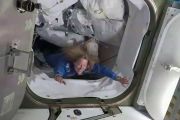The Boeing X-37 (also known as the X-37 Orbital Test Vehicle) is an American reusable unmanned spacecraft.
It is seen either as a minishuttle or as a robot spaceplane.
It is boosted into space by a rocket, then re-enters Earth's atmosphere and lands as a spaceplane. The X-37 is operated by the United States Air Force for orbital spaceflight missions intended to demonstrate reusable space technologies. It is a 120%-scaled derivative of the earlier Boeing X-40.
The X-37 began as a NASA project in 1999, before being transferred to the U.S. Department of Defense in 2004. It conducted its first flight as a drop test on 7 April 2006, at Edwards Air Force Base, California. The spaceplane's first orbital mission, USA-212, was launched on 22 April 2010 using an Atlas V rocket. Its successful return to Earth on 3 December 2010 was the first test of the vehicle's heat shield and hypersonic aerodynamic handling. A second X-37 was launched on 5 March 2011, with the mission designation USA-226; it returned to Earth on 16 June 2012. A third X-37 mission launched successfully on 11 December 2012.

